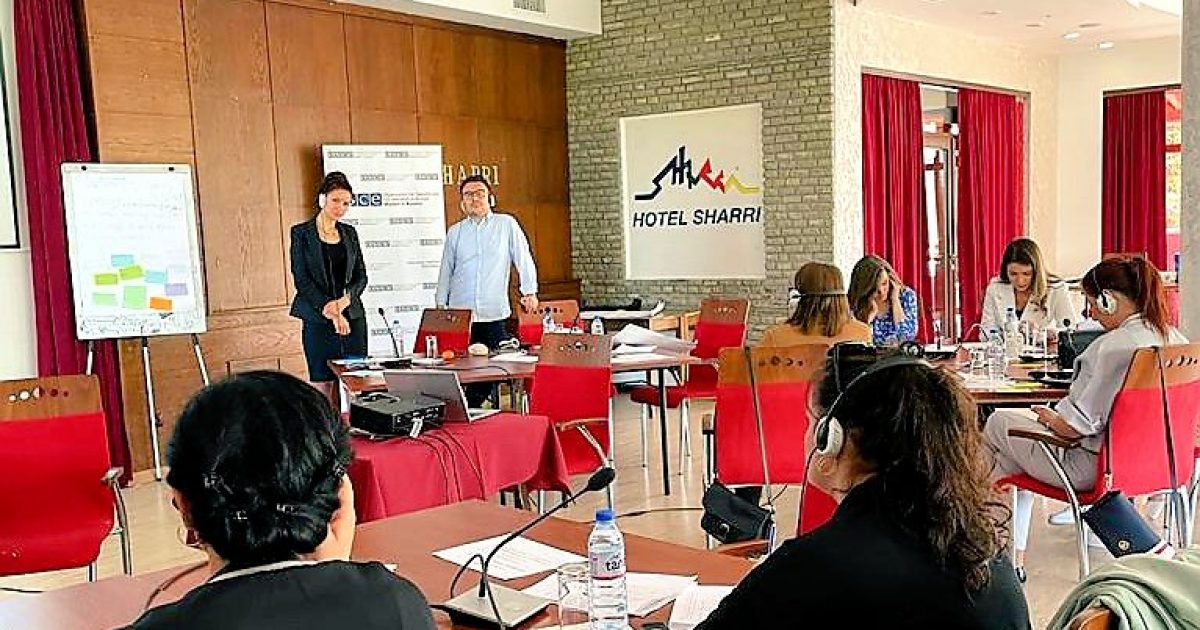On 10 and 11 May 2022, in cooperation with the Office for Democratic Institutions and Human Rights (ODIHR), the OSCE Mission in Kosovo held a two-day workshop on gender responsive governance and the role of women in decision-making processes in municipal level.
The workshop brought together women as well as newly appointed women to local government positions, and focused on how women in decision-making positions can use their authority to promote gender equality in their communities.
Concrete tools and best practice models were presented during the workshop to further contextualize the discussion, as illustrations of ways in which gender responsive budgeting can be used to build more inclusive and gender-sensitive municipal governance practices. .
OSCE Deputy Chief of Mission Kilian Wahl said there was clear evidence that gender responsive governance is more effective and ultimately leads to better decisions and more successful municipalities.
Wahl pledged that the OSCE Mission in Kosovo will continue to support municipal officials and officials in further advancing their skills and capacities in this area.
"During the workshop we were confirmed that the use of gender equality tools and mechanisms is essential to have more effective and accountable governance on gender issues, such as through the design and implementation of municipal gender action plans and gender budgeting," said Marqe. Selmanaj, Deputy Mayor of Viti.
Discussions highlighted the challenges women face in their daily work, such as the lack of trust of superiors to give women decision-makers significant responsibilities or opportunities for further development, and the lack of solidarity among women, in which case participants noted that greater unity among officials across municipalities could lead to positive change.
"Involving women's voices in politics and planning contributes to the sustainable building of local communities and enables everyone to develop equally, as gender-sensitive policies benefit both women and men by creating a transformational potential where perceptions, practices and values are developed to serve the well-being of local communities, ”said Yulia Netesova, Head of the Democratic and Gender Governance Unit within the ODIHR.
/ Telegraphy /
